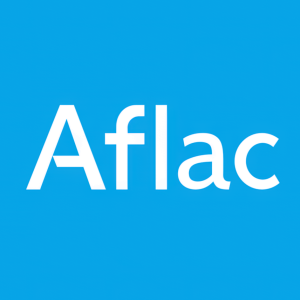When an Ounce of Prevention Can Be Worth a Lifetime of Cure
- None.
- None.
Insights
Insurance companies like Aflac play a pivotal role in shaping healthcare outcomes by influencing policyholder behavior. The emphasis on preventive care, as highlighted in the recent statement, underscores a strategic shift towards proactive health management. This shift aligns with broader industry trends where insurers are increasingly investing in wellness programs that encourage regular check-ups and screenings. Such initiatives can lead to a decrease in long-term healthcare costs by catching illnesses early, which ultimately benefits both the consumer and the insurer financially.
However, the impact on the insurer's financials can be nuanced. In the short term, increased preventive care can lead to higher claims volume as more policyholders utilize their insurance benefits for routine care. Over time, though, the potential reduction in the severity and frequency of claims due to early detection and treatment of diseases could lead to a more favorable claims experience for the insurer. This could result in improved profit margins and potentially lower premiums for policyholders, fostering a competitive advantage in the market.
The return to pre-pandemic levels of claims volume is a significant indicator of normalization for Aflac's operations. For investors, this normalization suggests stability in core business activities. It's important to monitor how this trend affects the company's loss ratio, which is the percentage of premiums paid out as claims. A balance must be struck between the increased cost of claims due to preventive care and the potential long-term savings from reduced catastrophic claims.
Furthermore, the emphasis on preventive care could also serve as a differentiator in the insurance market, potentially attracting a more health-conscious customer base. This demographic could be associated with lower risk profiles, which might lead to more favorable underwriting results. Investors should thus examine the company's underwriting practices and customer acquisition strategies to assess the potential for sustained growth and profitability.
From an economic perspective, the insurance sector's focus on preventive healthcare has broader implications for the economy. Early detection and treatment of diseases can lead to a healthier workforce, which in turn can boost productivity and reduce absenteeism. This has the potential to exert a positive effect on the gross domestic product (GDP). Moreover, by potentially lowering the overall healthcare expenditure, there could be a reduction in the financial burden on both public and private sectors.
The long-term economic benefits of a healthy population are substantial, including potentially lower healthcare costs, increased lifespan and a reduction in the incidence of chronic conditions that can drain economic resources. Stakeholders, including policymakers and healthcare providers, may find these insights valuable as they consider the interplay between healthcare practices and economic outcomes.
NORTHAMPTON, MA / ACCESSWIRE / February 21, 2024 / Aflac Incorporated
Originally published on the Aflac Newsroom
By Dan Amos, Chairman, CEO, and President, Aflac Incorporated
A few years ago, a friend told me his wife had been feeling out of sorts. She didn't know why, but because of the pandemic she hadn't been going to her regularly scheduled checkups. When she finally went, the news wasn't good. Stage 3 cancer.

Thankfully, she continues to improve, but sadly, her story isn't unique. Research shows that millions of Americans neglected their personal health during the pandemic,1 and while too many still are, I am pleased that our claims volume continues to return to pre-pandemic levels. We want to pay claims, and here's why.
As an insurance company, managing risk is what we do. For policyholders, we see part of managing risk to mean that they will take more charge of their personal health care needs. That's because we know that preventive care, like routine checkups and prescribed screenings, helps save lives, and as stewards of our customers' health and financial security, we are obligated to encourage this behavior through our policy offerings and our words.
Proactive care ought to be important to everyone, as not only can an ounce of prevention be worth a lifetime of cure, in the long run, early detection can help reduce costs to consumers2 and insurers and reduce stress on the overall economy.3 After all, the least expensive medical challenge is the one that never happens or the one that is treated before it becomes catastrophic.
In 2024, our goal is to impress upon people that the time to prepare is now. Think about it - would you wait for a hurricane to happen before weatherproofing your house? Of course not. Instead, you would install storm shutters, secure loose items in the yard and, yes, purchase insurance that will cover your property in the event of significant damage. We should do the same with our health care.
The American Cancer Society recently released its 2024 statistics. Some of the news is good. Death rates from cancer are declining due to, you guessed it, early detection and improvements in treatment protocols.
We urge people, regardless of life stage, to review the cancer warning signals, none of which would mean you have cancer, but could serve as incentive to see your doctor.4 Young people should develop good health habits, particularly as advancements like telemedicine have made it easier than ever to have a routine examination.
Of course, we believe Aflac is the preferred choice for individuals seeking the financial protection provided by supplemental health insurance, but our concern goes much deeper than that. We simply don't want families to go through what my friend's wife endured, when it could be avoided.
Dan Amos is Chairman, CEO and President of Aflac Incorporated. In his 34th year, he is the 5th longest-serving CEO in the Fortune 500.
1 Sparks, Hannah. "Millions of Americans can't afford doctor visits during pandemic: study." March 31, 2001. https://nypost.com/2021/03/31/46m-americans-avoided-doctor-during-pandemic-due-to-costs/, accessed on Feb. 5, 2024.
2 World Health Organization, "Promoting cancer early diagnosis." Accessed on Jan. 29, 2024. https://www.who.int/activities/promoting-cancer-early-diagnosis.
3 Fendrick, Mark, M.D. "Cancer screenings have saved the U.S. at least
4 Kaiser Permanente, "Cancer Warning Signals." Accessed on Jan. 29, 2024. https://thrive.kaiserpermanente.org/care-near-you/northern-california/santarosa/wp-content/uploads/sites/15/2015/10/Cancer-Warning-Signals_tcm28-808438.pdf.
Content within this article is intended to provide general information about an evolving topic and does not constitute legal or financial advice regarding any specific situation. This information is not intended to portray any specific details of Aflac supplemental insurance policies. For complete details, including availability and costs of Aflac insurance, please contact your local Aflac agent. Aflac supplemental coverage is underwritten by American Family Life Assurance Company of Columbus. In New York, Aflac supplemental coverage is underwritten by American Family Life Assurance Company of New York.
Aflac | WWHQ | 1932 Wynnton Road | Columbus, GA 31999
Z2400069
View additional multimedia and more ESG storytelling from Aflac Incorporated on 3blmedia.com.
Contact Info:
Spokesperson: Aflac Incorporated
Website: https://www.3blmedia.com/profiles/aflac-incorporated
Email: info@3blmedia.com
SOURCE: Aflac Incorporated
View the original press release on accesswire.com
FAQ
How is Aflac Incorporated's claims volume trending in 2024?
What does Dan Amos, the CEO of Aflac Incorporated, emphasize in the press release?






